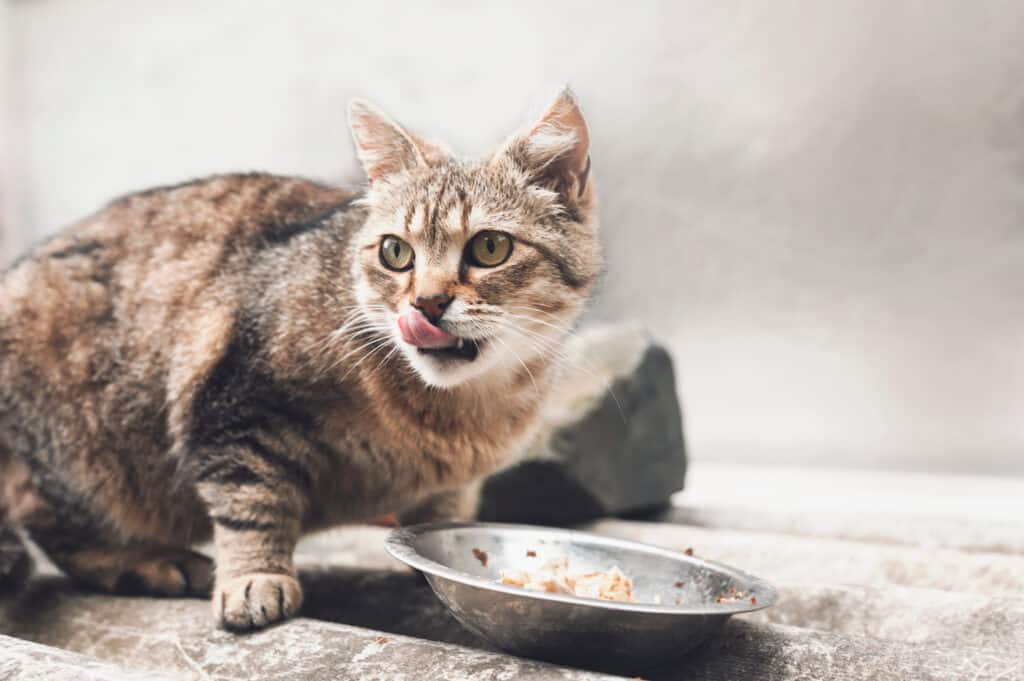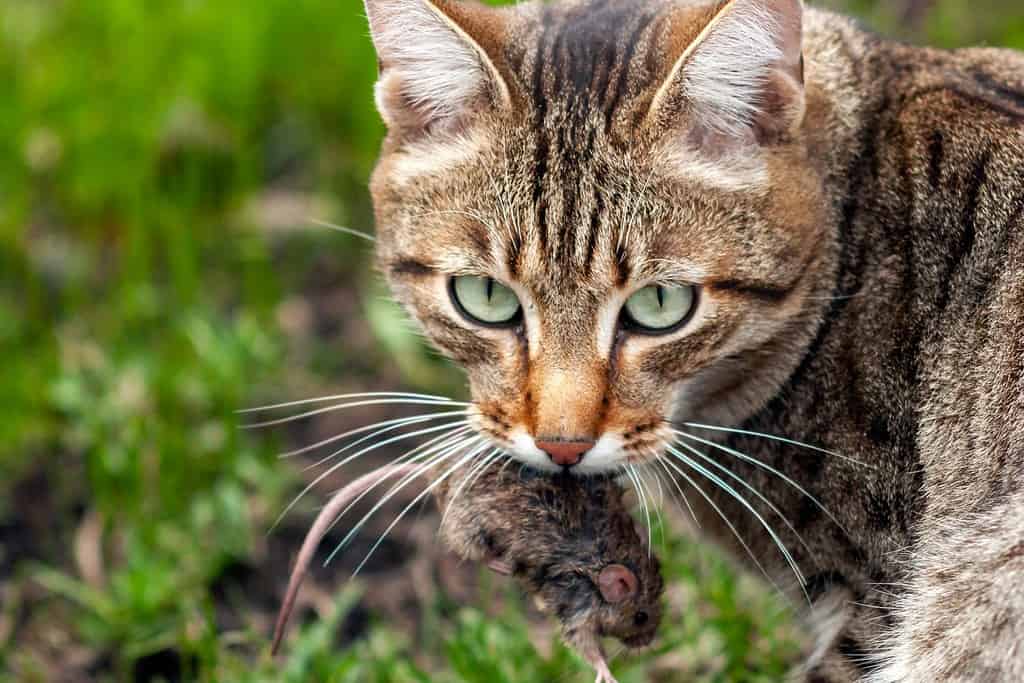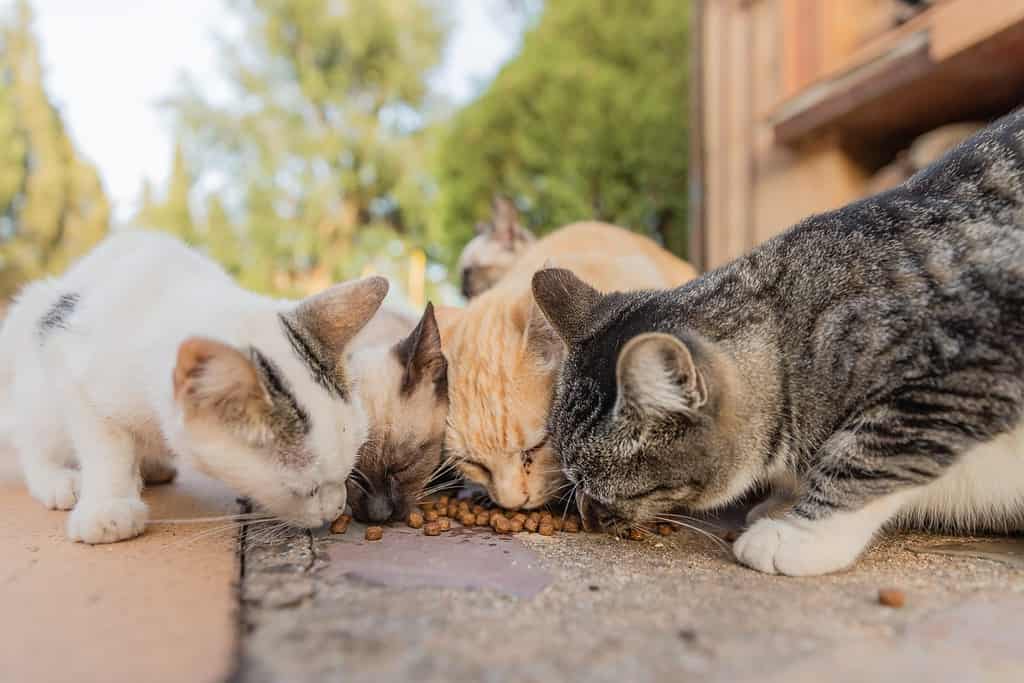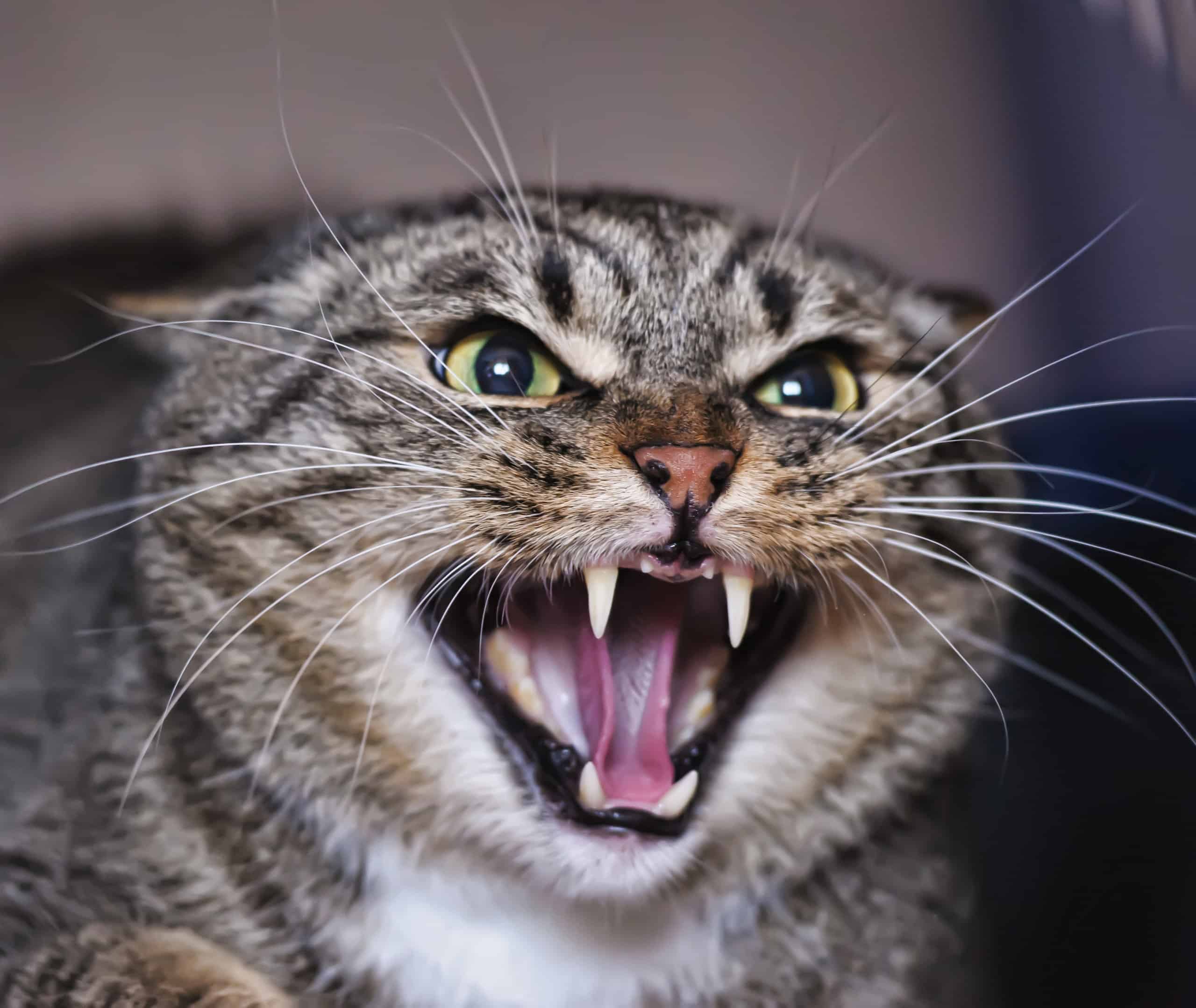Food aggression in cats is a fairly common and specific type of cat behavior that is probably related to anxiety. The aggression can be directed toward other cats, other pets, or people. It is distinct from other types of aggressive behavior in that it is apparent only at mealtimes or when there is food involved. At best it is alarming and at worst it is potentially dangerous to animals and humans. Let’s not forget that cat claws and teeth are sharp! Here we take a close look at the signs and causes of food aggression in cats. Then, we will list some top tips for how to stop it.
Signs of Food Aggression in Cats

Cats who guard food may have food aggression.
©Lia Kos/Shutterstock.com
Do you think your cat has food aggression? Perhaps you have noticed signs of aggression around feeding times but have put them down to over-enthusiasm for the meal. Here are some questions that experts will ask when trying to identify food aggression:
- Does your cat guard their food bowl or the area around it?
- Does your cat growl or hiss if an animal or human approaches when they are eating?
- Has your cat attacked an animal or human when food was present?
- Have you caught your cat stealing food or ripping food packaging?
- Does your cat beg for food persistently?
- Has your cat eaten food so quickly that they vomit?
- Does your cat seem to be constantly hungry?
If you answered ‘yes’ to any of these questions it could be a sign of food aggression. Make an appointment to discuss it with your vet so that they can rule out any other issues.
What Causes Food Aggression in Cats?

Cats are natural hunters.
©Vladimir Ya/Shutterstock.com
Wild cats are predators and feed when resources are available. Research has shown that the fact that we provide food for them does not cancel out their instincts. They like to eat alone and as frequently as they can. Their style of eating does not always match their indoor and domestic lifestyle.
Food aggression is seen most often in multi-cat households where the cats perceive that they are competing for food. Limiting food to two meals a day can make cats anxious about when food will be available and this can make them aggressive.
In the wild, cats can release their anxiety and stress by hunting – domestic cats cannot do this. Often, anxiety is caused by a lack of mental stimulation and boredom. There is a severe form of feline food aggression called psychogenic abnormal feeding behavior. Cats with this condition have even been seen clinging to food containers!
There can be underlying medical conditions that can cause this behavior, so it is important to discuss it with your vet. Some potential causes include neurological issues, osteoarthritis, hyperthyroidism, and dental disease. Your vet will take a full history of your cat’s behavior and may need to carry out some tests to diagnose food aggression.
Top Tips for Tackling Food Aggression in Cats

Feeding cats alone can help food aggression.
©Natalia de la Rubia/Shutterstock.com
Once your cat has been diagnosed with behavioral food aggression, there are plenty of things that you can do to help the situation. You should never punish your cat.
Separation From Other Pets
Start by giving your cat their own eating area. If possible, this should be in a different room from other pets. Placing the dish higher up can also help as it makes them feel more secure. Providing separate water bowls and litter trays will also help.
Frequent Feeding Routine
Swap two large meals a day for several smaller ones. This is closer to a wild cat’s feeding pattern. If you cannot be home to do this, use a timed automatic feeder.
Encourage Foraging
Place food around your house for your cat to find. This gives them something to do plus a tasty reward! Keep changing your hiding places.
Try a Puzzle Feeder
Puzzle feeders make it more challenging for cats to get at their food and this makes them use their brains and senses. It also slows down eating! Avoid feeding your cat from your own plate though.
Final Word on Food Aggression in Cats
Feline food aggression is caused by anxiety centered around feeding and is often caused by cats not being able to express their natural instincts. Affected cats guard their food and attack other pets or people. You can tackle it by providing a private place for them to eat and by feeding them in a way that matches their natural, predatory behavior.
Thank you for reading! Have some feedback for us? Contact the AZ Animals editorial team.








